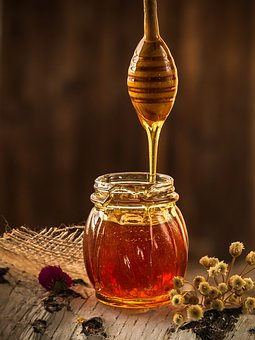 Honey has been used as a medicinal supplement for thousands of years. According to Marla Ahlgrimm, there are more than 300 different types of honey. Here, the retired pharmacist shares information on this sweet treat that can treat everything from cough to gastrointestinal disturbances.
Honey has been used as a medicinal supplement for thousands of years. According to Marla Ahlgrimm, there are more than 300 different types of honey. Here, the retired pharmacist shares information on this sweet treat that can treat everything from cough to gastrointestinal disturbances.
Q: What is honey?
Marla Ahlgrimm: Honey is a byproduct of pollination, usually associated with honeybees. It is mostly natural sugar but also contains antioxidants, amino acids, vitamins, and minerals such as zinc and iron.
Q: How is honey used?
Marla Ahlgrimm: Many people use honey as a sweetener for teas and confections. However, ancient healers used honey to treat cardiovascular disease, cough, and burns. There is an astounding amount of evidence in modern medical text that suggests that honey is effective for these and other conditions. It is important to note that since honey is a natural product, and there are no manufacturing processes that can replicate it accurately, that honey from one location may prove more effective than honey from another.
Q: Does honey treat coughs?
Marla Ahlgrimm: Citrus honey and eucalyptus honey are fairly reliable cough suppressants. Warm tea with honey and lemon can ease the discomfort of upper respiratory issues.
Q: What are some other medicinal applications for honey?
Marla Ahlgrimm: Ancient healers believed that honey could treat diseases of the heart. Modern science seems to support this theory. Honey, which contains antioxidants, may help lower the risk of cardiovascular disease in people who are at high risk of heart attack. Further, many studies suggest that honey has an antidepressant effect, and may lower anxiety in people with neurological dysfunction. It may also be used to heal burns and other skin wounds. A spoonful of honey can also quell stomach upset in many cases.













 Marla Ahlgrimm has co-authored two ground-breaking books,
Marla Ahlgrimm has co-authored two ground-breaking books,